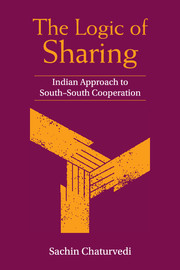Preface
Published online by Cambridge University Press: 05 March 2016
Summary
The logic for India's development cooperation programme arises out of the pains that India itself endured during colonial rule as a result of which India appreciates the needs of developing countries facing the challenges of reconstruction.
India's cooperation with neighbouring countries has always been on the basis of sharing skills, knowledge and culture – what in modern parlance is called ‘soft’ power. In his seminal work The Making of Greater India, H. G. Quaritch Wales observes that from the first to the eighth century AD, Indian art and culture was dominant across almost all countries in South-East Asia. These included Java, Sumatra (today part of Indonesia), the Malay Peninsula (modern Malaysia), Central Siam (now Thailand), Burma (Myanmar), Ceylon (Sri Lanka), Champa (Vietnam) and Cambodia. ‘So far as we know, this intense Indian grip on [part of South-East Asia] was purely cultural…there was never any Indian military conquest or annexation’. The dominance, Wales suggests, came about through three main Indian cultural waves (in addition to several smaller ones) led by three major dynasties: the Guptas (300 to 500 century AD), the Pallava (550 to 750 AD) and the Pala (750 to 900 AD). Their cultural messages were informed by both Buddhism and Vaisnavism.
India's philosophy of values in particular has embraced the idea of daanam (giving) across and through various scriptures: this is essentially the principle of sharing material possessions with others as part of one's dharma or duty. Daanam is not merely for the rich; it is viewed as a necessary societal responsibility for each and every individual at different times in life. The Hindu scripture Bhagavad Gita sets out a threefold division of daanam. The seventeenth chapter states that those who give such charity without the slightest expectation of any reciprocal benefit are situated in sattva guna (the mode of goodness) and will offer daanam at an auspicious time and place to a supatra (right recipient). Expecting a return on daanam, or giving grudgingly, is said to be raja guna. The third category is tama guna, which is neither sacred nor is given at the right time to a right person.
In contemporary times, India began sharing its resources through bilateral and multilateral assistance programmes early in its life as an independent nation.
Information
- Type
- Chapter
- Information
- The Logic of SharingIndian Approach to South–South Cooperation, pp. xvii - xxiiPublisher: Cambridge University PressPrint publication year: 2015
